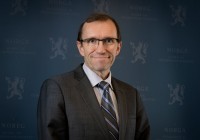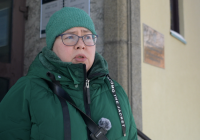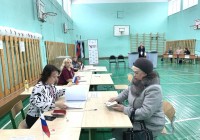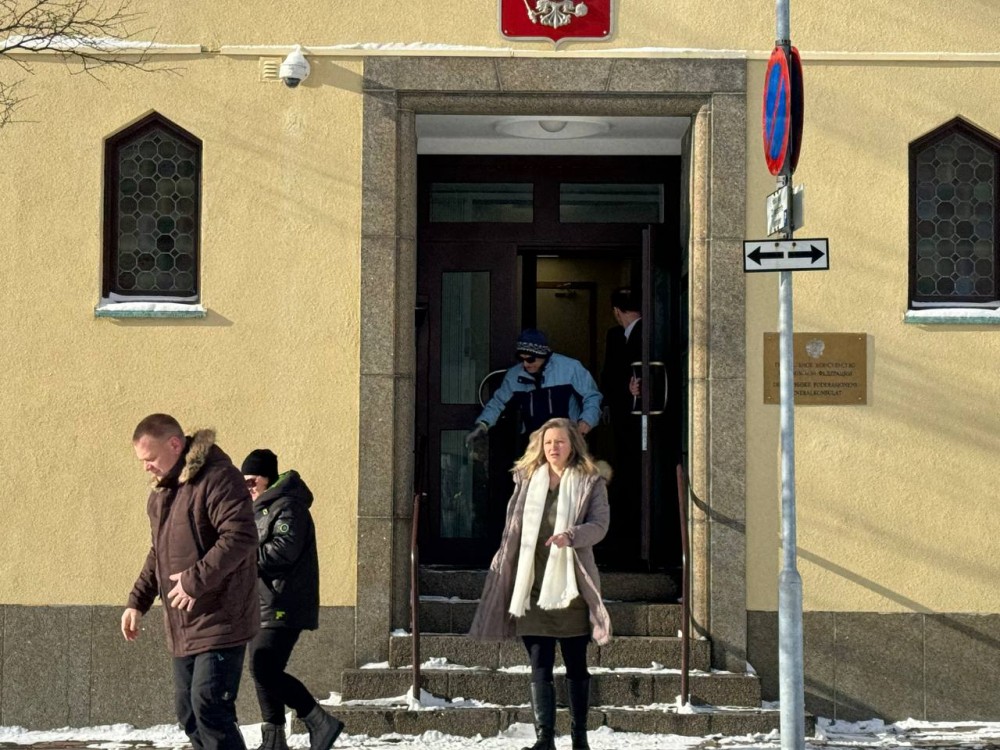
Russians in Northern Norway voted for Putin
ADVERTISEMENT
There were no long lines of Russians eager to cast their votes on election day in Kirkenes, the small Norwegian town located only few kilometers from Russia. And the lion’s share of the few people that showed up at the local Russian General Consulate appears to have voted in line with Kremlin propaganda — for incumbent ruler Vladimir Putin.
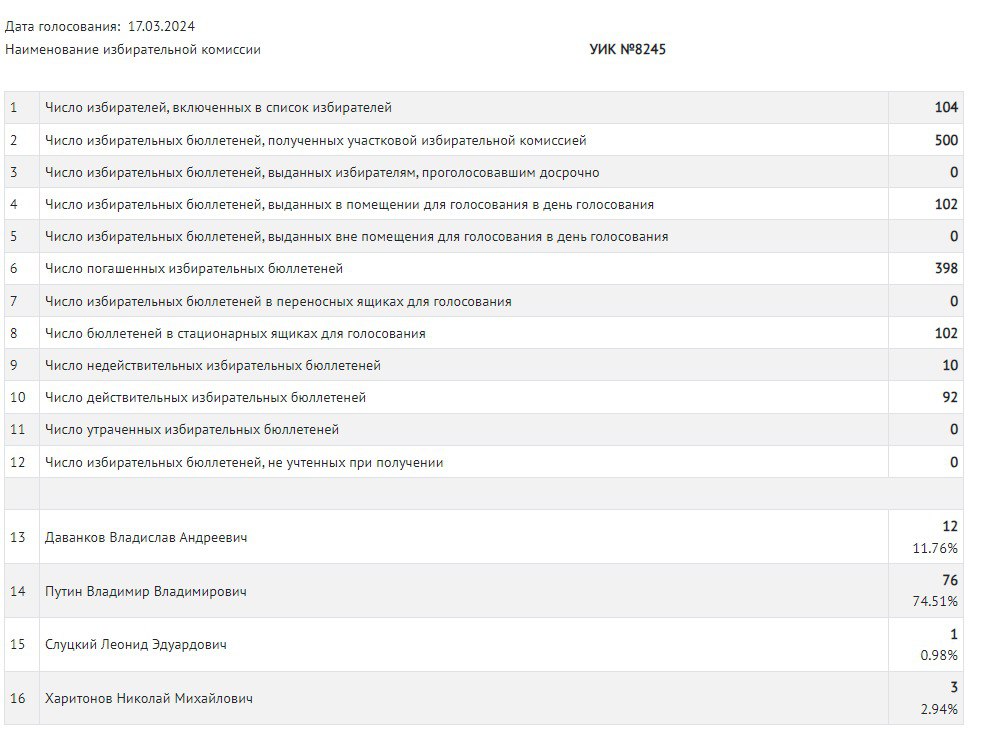
Figures that were issued by the Russian Central Election Commission on Monday morning show that 74,51 percent of local votes were for Putin.
Only 102 votes were cast, of which 76 were for Putin and 12 (11,76%) for Vladislav Davankov. Ten votes were declared invalid.
A big number of the voters were elderly women. One of them told the Barents Observer that she is confident that everything will be better with Putin.
«I voted for Putin and for Russia. I want Russians to live good. Everything is getting better. Everything is changing for the better, the politics, the economy, the people,» the woman that lives in Norway told the Barents Observer.
ADVERTISEMENT
Video by Liza Vereykina, the Barents Observer
The General Consulate in Kirkenes was one of three places in Norway where Russians could vote in Sunday’s disputed elections. The other places were Oslo and Barentsburg.
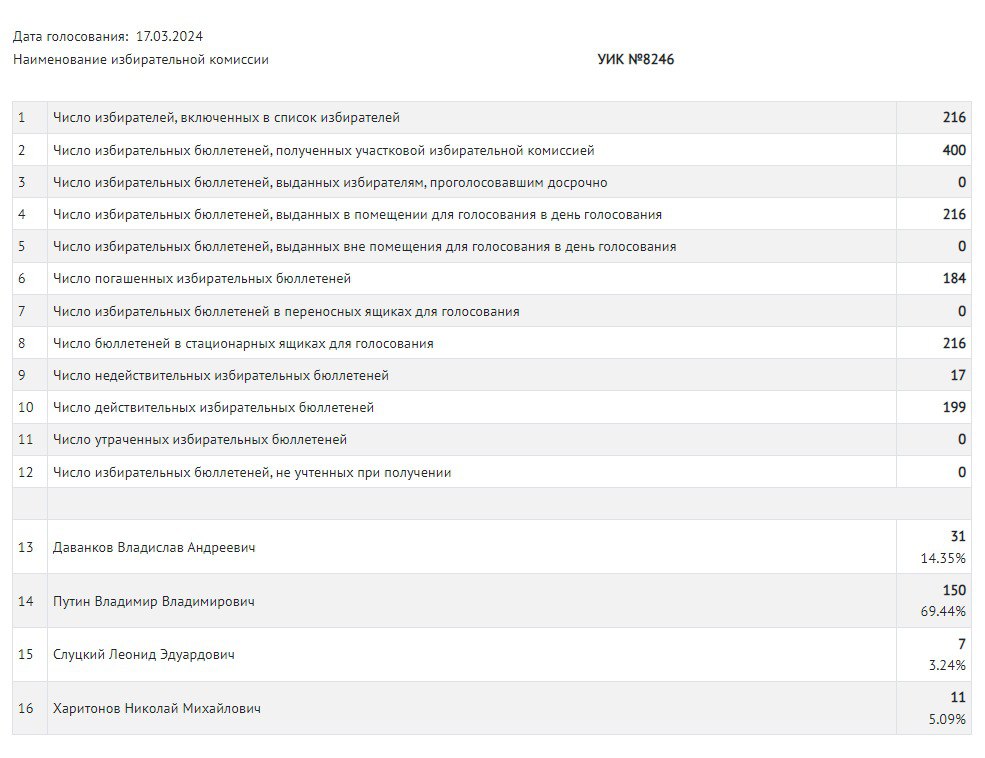
In the latter place, the number of cast votes reached 216, of which 150 (69,44%) were for Vladimir Putin, 31 (14,35%) for Vladislav Davankov and 11 (5,09%) for Nikolai Kharitonov. The number of votes declared invalid was 17.
In a statement, the Russian General Consulate in Barentsburg confirms that more than half all local Russians in the archipelago had participated in the vote.
“Together we are strong — we vote for our future, we vote for Russia!” the statement reads.
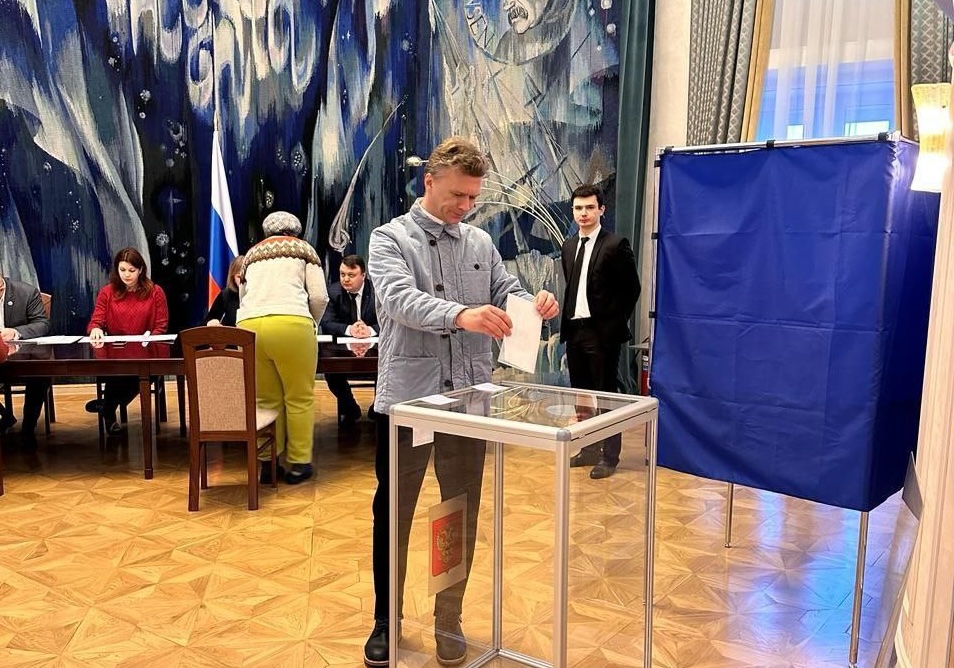
Figures from Oslo show a far lower support for Putin. But he still got 39,86 percent of the votes, a narrow win ahead of Davankov (36,83%). A total of 859 votes were registered, of which 172 were declared invalid.
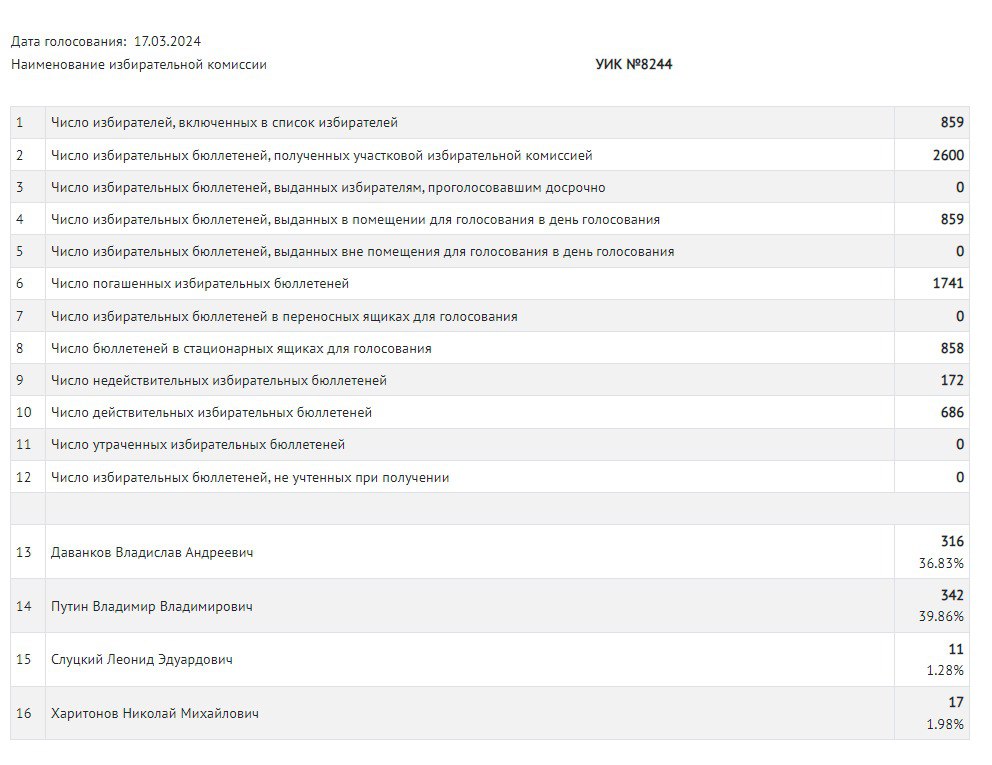
The results from Norway show a higher level of support for Vladimir Putin than in many other European countries.
In cities like Warsaw, Prague and the Haag, Putin got less than 20 percent of the votes, according to figures presented by Telegram channel Kovcheg.
The Russian vote was subjected to massive rigging and fraud, and their legitimacy is strongly disputed. In a statement, Norwegian Foreign Minister Espen Barth Eide underlined that “the so-called election in Russia was neither free nor fair.”
“It was not not an election the way we know from democracies,” he said.
Also the official results presented by the Russian Central Election Commission are disputed, including figures from the polling stations outside of Russia.
Symptomatically, exit polls conducted across Europe by activist project Voteabroad in many cases showed far lower support for Putin than the ultimate official results from the Election Commission.
ADVERTISEMENT
The Barents Observer Newsletter
After confirming you're a real person, you can write your email below and we include you to the subscription list.




